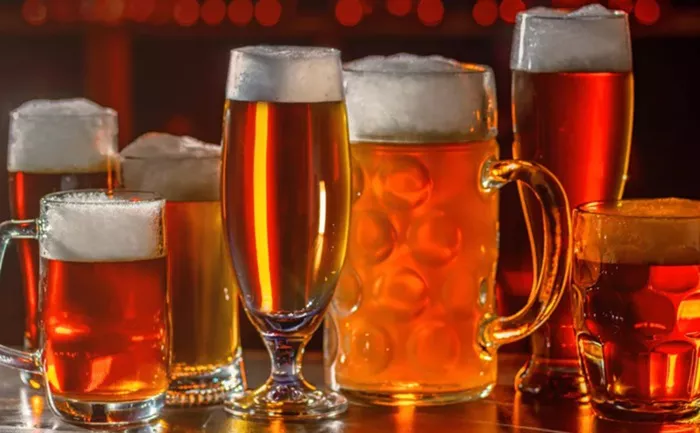Craig Woodburn, Sustainability Director for Western Europe at Molson Coors Beverage Company, recently shared insights into the global brewer’s ambitious sustainability efforts and the challenges facing the industry. With over two decades of experience in environmental compliance and sustainability, Woodburn highlighted Molson Coors’ commitment to reducing its environmental footprint and achieving net-zero emissions across its operations.
Molson Coors: A Global Brewer with Local Impact
Molson Coors Beverage Company, one of the world’s largest brewers, is home to iconic brands such as Carling, Coors, and Madrí Excepcional, as well as regional favorites like Sharp’s Atlantic IPA, Franciscan Well Chieftain IPA, and La Sagra Cerveza Premium Lager. Woodburn emphasized the company’s dedication to sustainability, noting that it aligns with the United Nations Sustainable Development Goals (UN SDGs) and forms part of its broader Environmental, Social, and Governance (ESG) strategy, known as Our Imprint.
“Every time one of our drinks is picked up, an imprint is left behind,” Woodburn explained. “We want that imprint to be a positive one.”
Ambitious Sustainability Targets
In 2017, Molson Coors set ambitious sustainability targets to be achieved by 2025. These goals focus on areas where the company can make the most significant impact, including carbon emissions, water usage, and sustainable packaging. In November 2023, Molson Coors received approval from the Science Based Targets Initiative (SBTi) for its net-zero targets, committing to achieving net-zero emissions across Scope 1, 2, and 3 by 2050.
The company has already made significant strides toward these goals. In Great Britain, Molson Coors reduced carbon emissions in its direct operations by 50% four years ahead of schedule. The company now aims to achieve net-zero Scope 1 and 2 emissions across all UK sites by 2035, supported by a £100 million investment in its UK production network announced in April 2023.
Collaboration Across the Supply Chain
Woodburn stressed the importance of collaboration with suppliers, customers, and industry partners to achieve these targets. “Data collection, accuracy, and availability are critical for targeted reductions and continuous improvement,” he said. Molson Coors is working closely with its suppliers to address challenges and develop solutions, ensuring transparency and progress toward its net-zero trajectory.
The company is also engaging with trade associations, such as the British Beer and Pub Association’s Environment and Sustainability panel, to foster industry-wide collaboration. “By working together, we can accelerate progress toward our collective sustainability goals,” Woodburn added.
Tackling Scope 3 Emissions
While Molson Coors has made significant progress in reducing Scope 1 and 2 emissions, Woodburn identified Scope 3 emissions—particularly in packaging, agriculture, and raw materials—as a key challenge for the industry. The brewing industry relies heavily on raw materials like barley, hops, and water, all of which are vulnerable to climate change.
To address this, Molson Coors has established the Molson Coors Growers Group, a network of approximately 140 British farmers committed to sustainable farming practices. The group focuses on crop rotation, cover cropping, and regenerative farming to improve soil health and biodiversity. “We’ve seen farmers in the group recognized for their sustainability efforts, demonstrating the benefits of long-term partnerships,” Woodburn said.
Water efficiency is another priority, with Molson Coors working to minimize water usage in its operations and supply chain. “Water is used at nearly every stage of our operations, and we strive to use it as efficiently as possible,” Woodburn noted.
Sustainable Packaging and Renewable Energy
Molson Coors has implemented several initiatives to reduce its environmental impact, from grain to glass. In 2021, the company became the first major UK brewer to produce all its products using 100% renewable electricity, thanks to a power purchase agreement with RWE. Its UK production sites and offices are powered by 22 turbines at the Tween Bridge wind farm in South Yorkshire.
The company has also invested in carbon dioxide recovery plants at its Burton and Tadcaster breweries, capturing CO2 from the fermentation process and reusing it in brewing. Additionally, all UK and Ireland production sites are zero waste to landfill, and the company has eliminated single-use plastic from its major brands. In 2021, Molson Coors replaced plastic rings with fully recyclable cardboard sleeves made from renewable wood fibers.
A Holistic Approach to Sustainability
Woodburn emphasized that sustainability is an ongoing journey requiring a holistic approach. “We need to focus on every step of our value chain, from grain to glass,” he said. Collaboration with suppliers, customers, and industry partners will be essential to achieving collective sustainability goals.
“We’re incredibly proud of the progress we’ve made, but we know there’s more to do,” Woodburn concluded. “Sustainability is not just the right thing to do for the planet—it’s what our customers and consumers expect, and it makes our business more efficient.”
Molson Coors’ commitment to sustainability underscores its role as a leader in the brewing industry, setting an example for others to follow in the journey toward a more sustainable future.
You Might Be Interested In:


